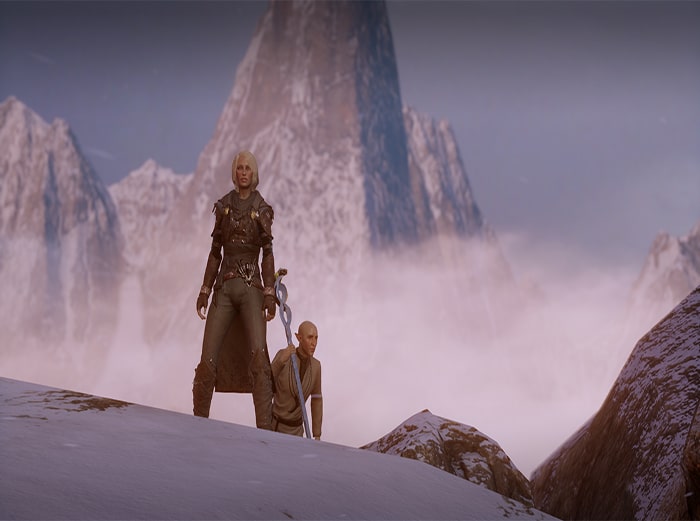In this interview, Nadège Gayon-Debonnet talks to us about her daily life as a translator specialized in video game localization.
Originally dedicated to geeks, video games came straight from Japan and quickly seduced a large audience and crossed generations. Over time, arcades have been replaced by laptops. This is how the phenomenon of video games has crossed borders and diversified. In fact, if it is possible, at the present time, to play online with your Chinese or Venezuelan neighbor in even grander universes, its mostly thanks to technological developments, but also to translators.
After being interested in German, Italian, Russian and even Slovak, until University, Nadège Gayon-Debonnet has devoted herself exclusively to English by starting a degree in Languages, Literature and Foreign Cultures at the Blaise Pascal University of Clermont-Ferrand followed by a Master MéLexTra in Lille 3. Today, this gamer is a translator specialized in video game localization and contributed to, among others, the production of Dragon Age: Inquisition and several installments of the Tales of series.
In this interview with Cultures Connection, she talks to us about the daily life of this little-known profession in the translation sector.
– How would you define video game localization?
– First of all, I would say, it is varied work which sometimes comes close to a guessing game. As we often lack information on the context of what we have to translate and we are never sure of getting answers to your questions, you have to cross-reference and deduce from the little that you have. You also have to have curiosity. For example, for a space exploration game, I had to do research on terms in botany, geology, chemistry, mechanics and quantum physics, among others!
Then, we are one of the last links in the game creation chain, and by being as close as possible to the text, we are often able to spot errors that may have escaped the developers. And then, we also receive unfinished texts because the development work continues in parallel. So we have to adapt from day to day to the changes made, and say that what we spent three days translating may not be used at all in the final version.
– Are you a gamer?
– Yes, but I don’t have the time to devote myself to my games as much as I’d like. Skyrim has been waiting for me on my computer for months and I haven’t had a chance to get into it yet. I mostly play on my smartphone, it’s easier to find a moment for a mini-game than to decide that I’m going to start playing a role playing game for 50 hours on a console or PC.
– Do you work in a team?
– Yes and no. I only work at home, but in fact, there are several of us working on the same game. I am always in direct contact with at least the project manager and sometimes the proofreader or the translator if I’m the one proofreading. And then, from time to time, on certain projects, everyone ends up on a Skype conversation to discuss the choice of terminology.
– What translation software do you use?
– In recent years, I almost exclusively use MemoQ. All my clients have gotten into it and I must say that I find it very practical. Before that, I used Trados Studio, and before that, i navigated the labyrinth that was Trados 2007.
– Who are the most important clients in video game localization?
– There are two types of clients: video game publishers themselves, and localization agencies who can act as intermediaries between the publishers and translators. For my part, I essentially work for agencies. Although the rates are lower by working directly for publishers, they take over the (often complex) management of projects and the (often complex) relationships with publishers, which is a huge relief.
– If you had to learn one more language to extend your skills in video game localization, what would it be?
– Japanese. I often work on games that have been translated from Japanese to English to then be translated into other European languages. This translation-relay system helps to minimize costs for publishers, but sometimes at the expense of quality. I often find myself thinking that it would be much easier for me if I understood Japanese, since the source text often appears in my files next to the English version. But, it is quite difficult to find the time and energy to learn such a complex language.
– Do you have a story that you could tell that would sum up the reality for video game localizers?
– During my internship, one of the project managers told me: “If someday I write my autobiography, I’ll call it Could you please provide more context”. I often say the same thing. This is the phrase we write most often in this business, not in our translations themselves, but in the files of questions we send to developers for clarification. I must say that the source texts often resemble long lists of words without any indication.
– What games would you like to translate and why?
– I would love to work on the Zelda and Final Fantasy series, simply because they are my favorite games! I really like the principle present in these two series: inventing a new story each time, but keeping recurring elements. Unfortunately, I haven’t had a chance to work on it professionally.
Translation into English: Chloe Findlay
Discover our translation services.



